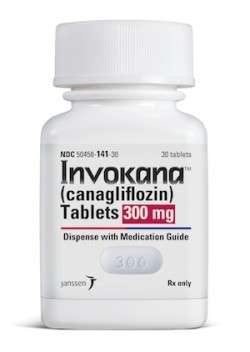Top Class Actions’s website and social media posts use affiliate links. If you make a purchase using such links, we may receive a commission, but it will not result in any additional charges to you. Please review our Affiliate Link Disclosure for more information.
A new study by pharmaceutical industry researchers concludes that episodes of ketoacidosis associated with canagliflozin, sold under the brand name Invokana, are rare.
The study was published in July 2015 in the journal Diabetes Care by the American Diabetes Association. Researchers looked at the histories of 17,596 patients who had been part of randomized studies of canagliflozin through May 2015.
Of that group, the researchers found reports of serious adverse events of diabetic ketoacidosis in twelve patients, or 0.07 percent of the sample, who had been taking either canagliflozin or a comparator. The researchers concluded that diabetic ketoacidosis was a rare occurrence in the canagliflozin type 2 diabetes program.
The study was funded by Janssen Research & Development, LLC, a subsidiary of Johnson & Johnson. Janssen Research & Development developed canagliflozin in conjunction with Mitsubishi Tanabe Pharma Corp.
Invokana and Diabetic Ketoacidosis
Canagliflozin is the generic name for Janssen Pharmaceutical’s brand-name drug Invokana. Invokana is a relatively new addition to the market for diabetes medications. It was first approved by the FDA in March 2013 as a treatment for type 2 diabetes (though not for type 1). Canagliflozin is also sold under the brand name Invokamet in a combination with the older diabetes drug metformin.
Ketoacidosis is a dangerous increase in blood acidity. It’s usually associated with prolonged fasting or abnormally low levels of insulin. Diabetic ketoacidosis is generally associated with type 1 diabetes and not so much with type 2 – which is what’s attention-getting about type 2 patients developing ketoacidosis while on Invokana.
The Janssen-funded study comes two months after the FDA issued a drug safety communication warning about the risk of ketoacidosis associated with canagliflozin and other drugs in the class of diabetes medications known as SGLT-2 inhibitors. SGLT-2 inhibitors keep blood sugar low by stimulating the body to remove it through urination.
The FDA says its Adverse Event Reporting System revealed twenty cases of ketoacidosis identified in patients taking SGLT-2 inhibitors, like Invokana. These reports were from a roughly fifteen-month span from March 2013 to June 2014. All twenty patients required emergency room treatment or hospitalization.
The FDA recommends that patients taking SGLT-2 inhibitors like Invokana should seek medical attention immediately if they develop symptoms of ketoacidosis including “difficulty breathing, nausea, vomiting, abdominal pain, confusion, and unusual fatigue or sleepiness.”
The agency advises physicians to watch for ketoacidosis in patients with these symptoms, to discontinue treatment with SGLT-2 inhibitors if the diagnosis is confirmed. The agency cautions patients not to stop taking their medication without first consulting their doctor, though.
The FDA says it is continuing to monitor its reporting system for reports of ketoacidosis occurring in conjunction with canagliflozin and other SGLT-2 inhibitors.
Since the Janssen study was published, another research study by affiliates of the National Institutes of Health and the University of Maryland School of Medicine found that “SGLT2 inhibitors trigger multiple mechanisms that could predispose to diabetic ketoacidosis.”
The researchers recommended further research directed at identifying which patients are most at risk and how to optimize treatment to minimize the risk. The study was published in The Journal of Clinical Endocrinology & Metabolism in June 2015.
In general, diabetes medication lawsuits are filed individually by each plaintiff and are not class actions.
Do YOU have a legal claim? Fill out the form on this page now for a free, immediate, and confidential case evaluation. The attorneys who work with Top Class Actions will contact you if you qualify to let you know if an individual lawsuit or class action lawsuit is best for you. Hurry — statutes of limitations may apply.
ATTORNEY ADVERTISING
Top Class Actions is a Proud Member of the American Bar Association
LEGAL INFORMATION IS NOT LEGAL ADVICE
Top Class Actions Legal Statement
©2008 – 2024 Top Class Actions® LLC
Various Trademarks held by their respective owners
This website is not intended for viewing or usage by European Union citizens.
Get Help – It’s Free
Join a Free Diabetes Medication Class Action Lawsuit Investigation
If you or a loved one suffered ketoacidosis or kidney failure after taking Invokana, Invokamet, Farxiga, Xigduo XR, Jardiance or Glyxambi, you may have a legal claim. See if you qualify to pursue compensation and join a free diabetes medication class action lawsuit investigation by submitting your information for a free case evaluation.
An attorney will contact you if you qualify to discuss the details of your potential case.
Oops! We could not locate your form.













